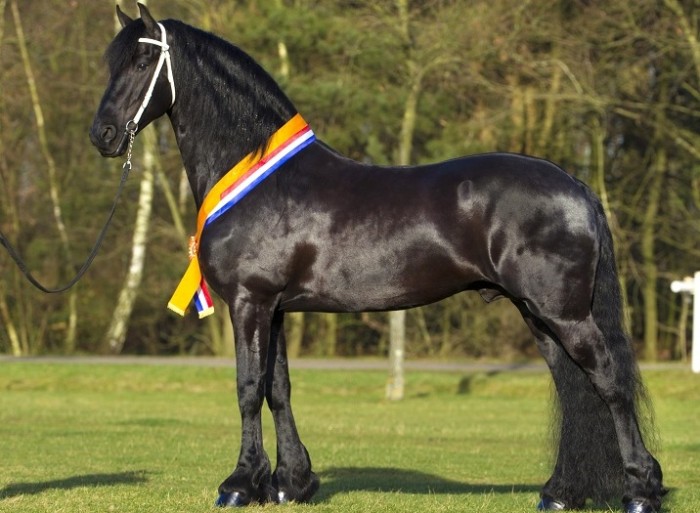
De genetica achter cryptorchisme bij Friese veulens
It has been suggested that testis size contributes to cryptorchidism. In males with cryptorchidism, one or both testes do not descend into the scrotum. When both testes are not descended this leads to infertility.
Testis size might contribute to cryptorchidism, as a too large size of the testis might obstruct passage through the inguinal canal. Genetic research on cryptorchidism is limited, while a genetic background has been suggested. In different studies breed and family differences in prevalence have been observed. The aim of this study was to estimate genetic parameters of cryptorchidism and testis size in Friesian colts.
For this study data on cryptorchidism (n=1327) and testis size (n=868) in 1-7 month old Friesian colts were collected during veterinarian inspections from 2009 to 2012. Based on this data a genetic analysis was performed to estimate the heritabilities, phenotypic and genetic correlations.
The results show a prevalence of 14.2% for cryptorchidism in Friesian colts. The heritability of cryptorchidism was 0.13, where the heritability of left testis size (0.12) was lower than right testis size (0.31). Based on these results cryptorchidism in Friesian colts coincides with a smaller testis size. The data of this study provide a foundation for selection against cryptorchidism.
Expert opinion by Anouk van Breukelen
More precise phenotyping, like recording the age of the stallion, will contribute further to untangling the genetic background of cryptorchidism. Next to that, the genetic background of cryptorchism might differ in other breeds and genetic parameters should be estimated within the breed to set up a breeding program.
> From: Schurink et al., Livestock Science 190 (2016) 136-140. All rights reserved to Elsevier B.V. . Click here for the online summary.

